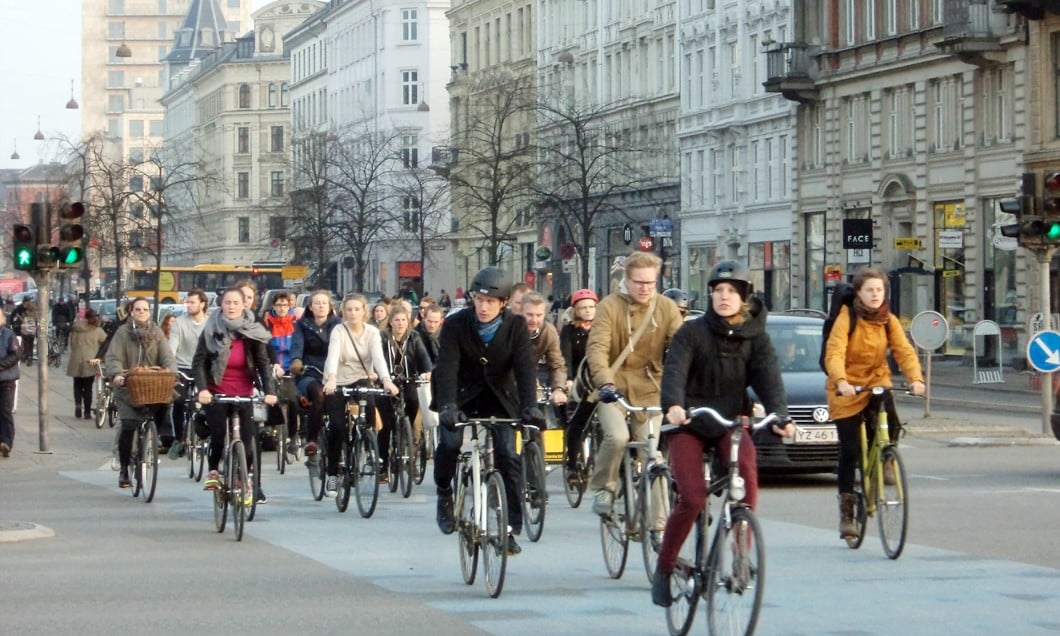
Bicycle is not only a modern alternative for urban mobility, it is an expression of a new life style and change in the way people think about status

Cycling has become very popular in Germany where people are increasingly switching over from car to bike. It is not only healthier, environment-friendlier and cheaper, it is often also quicker because in the cities it is easier to get from one place to the other on a bike.
Considerations like these, perhaps, prompted Markus Lewe to cycle to work every day, whatever the weather. "This is nothing special in itself, many people do it these days in Germany," says Adam Opel in an article entitled "No other invention combines the useful with the pleasant more intimately than the bicycle" published in De Magazin Deeutschland (autumn 2015 issue). "But, Markus Lewe is a mayor. He has to represent his city and has lots of official engagements during the day. But that’s not a problem either; because Markus Lewe is the mayor of Munster, the cycling capital of Germany."
Some 100,000 people travel by bike every day in this Westphalian university town, which has 300,000 inhabitants. Markus Lewe owns four of them: a racing bike, a folding bike, a Dutch and a touring bike. He also uses his bicycle when he’s on official business because it’s simply more practical. Munster is not too big, nor too hilly, and the infrastructure for cyclists in this town is better than in most other German cities: cyclists have the car-free ring road around the city centre to themselves; you can get into the centre really quickly; and the bike stand at the town’s main railway station offers 3,500 secure parking spaces and includes a repair service, bike rentals and a bike-cleaning facility. One should not, therefore, be surprised if Munster has earned the distinction of being Germany’s most bicycle-friendly city. "These days, 39 per cent of trips in Munster are done by bicycle, says Lewe proudly, "only 33 per cent by car."
Munster is a trendsetter in a development that can be observed all over Germany. People are switching from car to bike. According to a recent nationwide official survey, 35 per cent of the respondents cycled to work or college while even more people use their bikes for shopping and short errands. "The bigger the city, the fewer people use a car," says a report in the Fahrrad Monitor. This is especially true of Germany’s capital city Berlin, where more people than average leave their cars at home and travel by public transport and bike. Members of the Bundestag (parliament), like Hans-Christian Strobele, a German politician, also cycle from their homes to the nearby government district.
In Frankfurt, bankers and consultants bike it along the main river to the financial district. And in Cologne, even the Archbishop, Rainer Maria Woelki, can be seen on a bicycle when not wearing his cassock.
Currently, there are 72 million bicycles in Germany -- that is almost two per household. Some 30 per cent of households in major cities with more than 500,000 inhabitants have nothing but bicycles, they own neither a car nor a motorcycle. The country’s Federal Statistical Office has calculated that Germans travel almost 25 billion kilometres a year by bike -- expending 800 calories of energy per person per hour.
The example of Munster is also having an impact internationally. Representatives from London (UK) and New York (USA) have paid visits to Westphalia to find out how a "bicycle town" works, because they are facing total gridlock not only in major cities but all over. Amongst others, director of the Tour de France, Christian Prudhomme, has also paid a visit to Munster, but for a different reason: to use Munster as the location for a stage of the world’s most famous cycle race.
Bicycle is not only a modern alternative for urban mobility, it is also an expression of a new lifestyle and a change in the way people think about status. Bicycles are seen more and more often in people’s homes instead of in a parking lot -- as a decorative accessory. Students will have a fixie -- a simplified version of a racing bike with only one gear -- while managers might prefer a stylish bamboo bike. This says more about the owner than decor.
The bulk of bicycles sold in Germany are still city, mountain or trekking bikes, but there’s no limit to what individuality can come up with.
To meet the rising demand, over two million bicycles are produced every year in Germany, and almost three million are imported from abroad. In addition to the major manufacturers, there are numerous small firms that custom-make bicycles by hand. The German market offers everything from Euro 20 second-hand bikes to discounter cycles and high-tech bikes with smartphone control. Electric bikes with a small electric motor to support the cyclist have been developed fastest of all and their sale figures for electric bikes are continuously shooting up. Press Photographers use it to get to the scene faster, and bicycle couriers are switching over to it too.
The cycling boom is encouraging the development of a new infrastructure. Very much part of the current trend are repair cafes: a mixture of self-help workshop and bistro. This is where all kinds of items that would otherwise be thrown away can be repaired and re-used. Making a high-quality bike out of used parts is regarded as a particular challenge. The idea originated in the Netherlands and has since been picked up by many people in Germany, where there are already over 100 repair cafes, including over a dozen in Berlin.